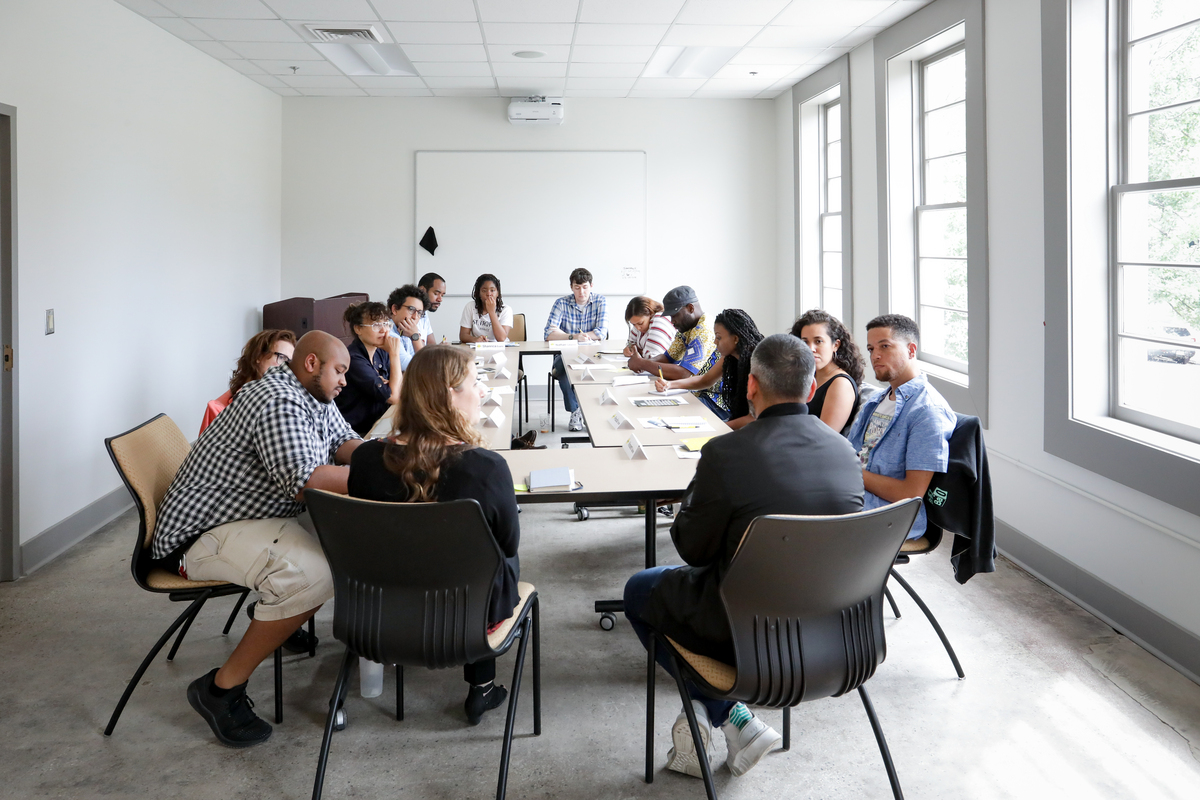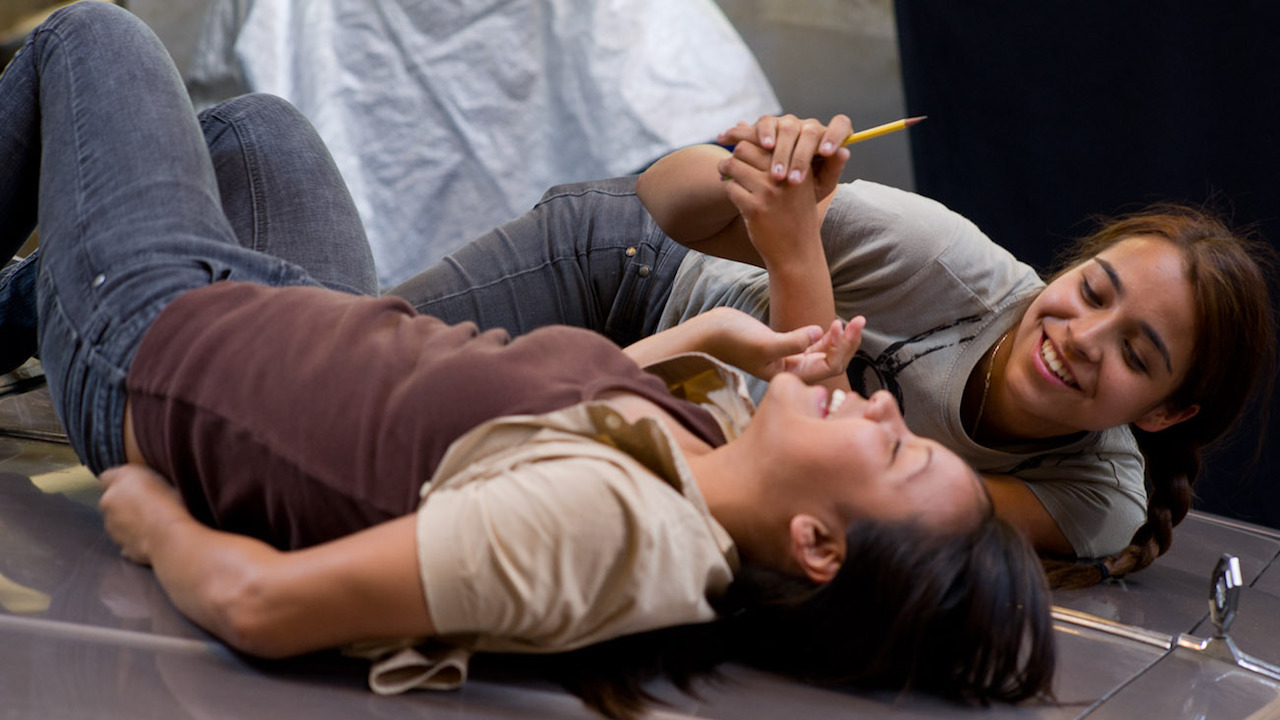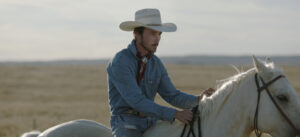1. Find the Right Lab or Grant for You
There are dozens of labs and grants available to artists worldwide to help develop, pitch, rewrite, finalize or promote a film. Simone Ling, whose producing credits include Mosquita Y Mari, They and Love’s Kitchen, has worked as an Advisor for Sundance, a mentor and development instructor for the American Film Institute, a member of BAFTA’s New Talent and Scholarship Committee and a member of the Producers Guild of America. Ling says she is frequently struck by the lack of knowledge around labs and grant opportunities.
“A surprising number of people coming out of prestigious film schools are unaware of the sorts of labs and grants that are available to them,” says Ling. “For example, we all know the Sundance Labs, but a lot of people don’t know there are actually two main writers’ labs: the main writers dive in January, but also an intensive in March, which is specifically aimed at diverse writers or filmmakers slightly earlier in their career across the spectrum, whether that’s BIPOC, LGBTQ, military or in the disability arena of any sort. There’s also Film Independent, the other large LA body, and I come across filmmakers who don’t know about Project Involve. There is a crucial component to career building to know about these labs and what’s available to you.”
The three main lab programs in the U.S. right now are Sundance, Film Independent and the Gotham labs, the latter of which is based in New York. Each program accepts between eight and 12 fellows, all chosen from “a frighteningly large pool,” as Ling describes it. “It’s intense to get into a lab, but someone has to get in, so that doesn’t mean don’t apply. If you don’t apply, you won’t get in, that’s for sure.”
When approaching such a competitive endeavor, it’s important to understand what the labs are looking for in their applications – and in the applicants themselves. “Look at them and look at the deadlines. I would start a spreadsheet and put the dates of when the labs are and when the applications are expected in. It’s boring, but very practical. Then, go do some research. It’s widely publicized who the fellows are each year. Go look at them; what are their projects, who are they, where did they come from?” Sundance, Film Independent and Gotham are open to any applicants, but there are many more opportunities that are specifically targeted towards certain communities, and determining whether you are eligible for those opportunities must be one of your first steps in your research.
2. Understand the Application Requirements
Each lab might have slightly different requirements, but as Ling explains, “Some of these basic protocols will apply: they’ll probably ask for five to 10 pages, and you should make sure that those are good. The general things most labs want are your script, a personal essay on who you are [and] why you’re interesting and an artistic essay [on] why this piece and what is your artistic take on it.”
She also adds that for writer/directors, it’s always advisable to submit a pitch deck or a visual portfolio along with your script and application materials, even if the visual materials are not required. “If you are really the writer/director, you are it, so you need to have a strong voice on the page, but also, what is your visual take? I think it’s a two handed thing, absolutely give me both of you.”
Ling also advises that you “Think about themes, you’ll be asked about them…If you don’t know, it means you’re not ready, so don’t apply.” Additionally. comparing your intention to other well-known projects tonally or visually can help readers understand your concept.
On the other hand, it’s also important to remember that labs are intended for projects that are still in their earliest stages of being made. Ling suggests, “If you are so prepared you’re actually in prep already and you’ve got finances and you’re ready to go, bear in mind the lab is to improve your script, so we may not be for you. You might want to be looking at other things like post production labs or an editing lab, so bear that in mind. You can be too ready.”

3. Be Strategic and Specific in Your Applications
Once you’ve done the leg work and decided to move forward, Ling advises applicants to invest enough time in your personal essay and artistic statement, be authentic and realistic about your project and be considerate of the people who will be reading your application. Personal essays and artistic statements in particular can be especially challenging, but Ling compares a personal essay to a first date: it’s important to make a good first impression so they will want to learn more about you.
When applying for a grant specifically, you will be asked about your ideal budget for your project, and you must be as realistic as possible, rather than pitching a number you think the program will want to hear. Ling says that most grants will offer between $10,000 and $50,000, so they will want to know how you feel that money will be best spent on bringing your film to the finish line. “Present an honest application, really sort of do your homework,” Ling says. “Tell us, ‘I want $10,000 for a composer and color, these are the prices I’ve been given, this is the money I’ve raised, this is the money I’ve yet to raise.’”
With all of this information being collected and submitted, it’s critical to remember that the people on the other end of the application process are working hard to make this possible for potential fellows. “Please be respectful,” Ling says. “If you think of the person on the other side who’s looking at thousands of submissions, please bear in mind: run a spell check, use the correct format, if you’re asked for 10 pages don’t submit one, if you’re asked for the full script don’t submit 10 pages and then be surprised when you’re asked for the full script. Small things like that happen surprisingly often.”
This industry is adventure sports for creatives; it really isn’t for the faint of heart.
4. Don’t Get Discouraged
“We, for some reason, have chosen a profession where we’re told ‘no’ all the time,” Ling says. “We’re absolutely insane, but I quite like to cite [filmmaker] Ava DuVernay, who famously said she was rejected six times from the Sundance Film Festival and from the labs four times. And she just kept going. She believed in her own voice and her own story, and she just kept going. My advice is, try not to be despondent. It’s very easy, you will be told ‘no’ endlessly and if that really does a number on you, it just might not be the profession for you.”
Getting discouraged is very easy in this industry, and especially early on in your career, it’s very hard to know where to look to find support for you and for your work. “Make a community,” Ling advises. “Find out who you know. If you live in Maine, is there a Maine film society? If you are fortunate to live in a big city, UCLA extension, for example, has classes. I was at a workshop recently where a female executive was rephrasing the concept of ‘networking’ and she said she preferred the term ‘net weaving.’ I agree, that’s what it’s all about.”
Still, you will face a lot of rejection in this industry, and with that in mind, building an audience and a community is especially important. “You have to develop a rhino hide, I think. No one likes to be told ‘no.’ I think that’s useful to remember, that everybody hates it. It’s not fun to be rejected, so I think that’s helpful to remember that you’re not alone,” Ling says. “Find your own support network. This industry is adventure sports for creatives; it really isn’t for the faint of heart.”
Finally, as any creative knows, belief in yourself and in your work is the most important component of all. Trust that you are learning, doing the work and that you have unique stories worthy of being told. “You’re all here, you’re giving your time to this, you want to know more,” Ling says. “Just believe in your own voice. We’re storytellers. I think the community needs stories. We love our stories, we live our stories and people always want them.”
Watch the full conversation: Advisor Studio: Simone Ling on Navigating Labs, Grants and Resources in the Independent Film Space for more on the importance of submitting a new application even when reapplying for the same grant, looking at granting opportunities outside of the U.S.,



